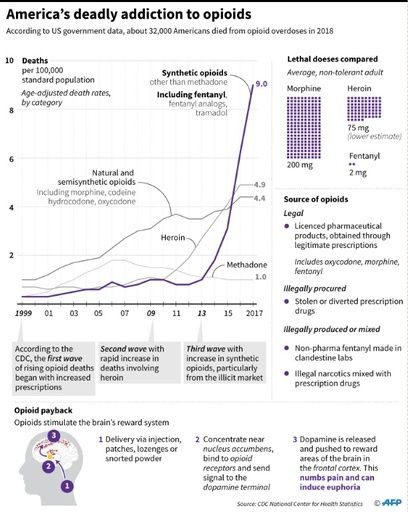Study: Opioid Scripts Too Strong, Risk Addiction

It’s been in the news for years now: opioids are addictive, even when prescribed for legitimate reasons. But a new study shows that even for a relatively simple surgery, the pain-leveling power bestowed in a script is still there. As is the potential for addiction.
In the 1990s, when doctors began to prescribe opioids to help their patients manage their pain, they weren’t yet aware how addictive these drugs were. Today, it’s estimated that more than 2 million Americans are addicted to prescription opioids or heroin, often the drug of choice for people who can't get hold of opioids. And, according to the latest published numbers by the National Institute on Drug Abuse, 128 people in the United States die every day from an opioid overdose; more than three-quarters of a million people have died since 1999. Despite efforts to reduce prescription opioid use, not all physicians apparently are on board with the plan.
New research from the University of Pennsylvania looked at nearly 100,000 patients who had knee surgery between January 2015 and June 2019. They focused on patients who had never taken opiates before. Some of these patients had a procedure that involved cutting the bone, while for others it was just tissue and muscle.
The researchers found there was a lot of variation in the opioid prescription rates across the country for these patients, with the lowest at 40% in South Dakota and the highest at 85% in Nebraska. But what the states all had in common was that the average prescription strength was too high, which puts patients at risk for an overdose. Patients got, on average, 40 pills, but some received more than 100. “... [T]he average number of pills prescribed was extremely high for outpatient procedures of this type, particularly for patients who had not been taking opioids prior to surgery,” M. Kit Delgado, MD, said in a press release. Dr. Delgado is a study co-author and an assistant professor of Emergency Medicine and Epidemiology in the Perelman School of Medicine at Penn.
Not only did these patients receive lots of pills after their knee surgeries, they also were given strong doses. The study showed that many patients were given a daily dose above the Centers for Disease Control and Prevention’s threshold for addiction. “Patients prescribed higher opioid doses are at a higher risk of overdose death,” explained the CDC.
It is not unusual for patients to have prescription opioids left over, on average over half are never taken. Just because these pills are not taken as prescribed, it doesn’t mean they don’t get used. Researchers who surveyed teenagers taking prescription opioids found over a third of them used pills that were leftover from their own prescriptions, half were given pills by a friend or family member, and a fifth took pills from a friend and family member.
The Penn study suggests that there could be better guidelines for prescribing pain medication. While it is important to keep post-operative patients comfortable, that should be possible without increasing the risk of addiction. “...Despite recent attention to opioid stewardship, we find evidence of significant practice variation in opioid prescribing for the most common outpatient procedure and ample opportunity for improvement,” said Dr. Delgado in a tweet.



























